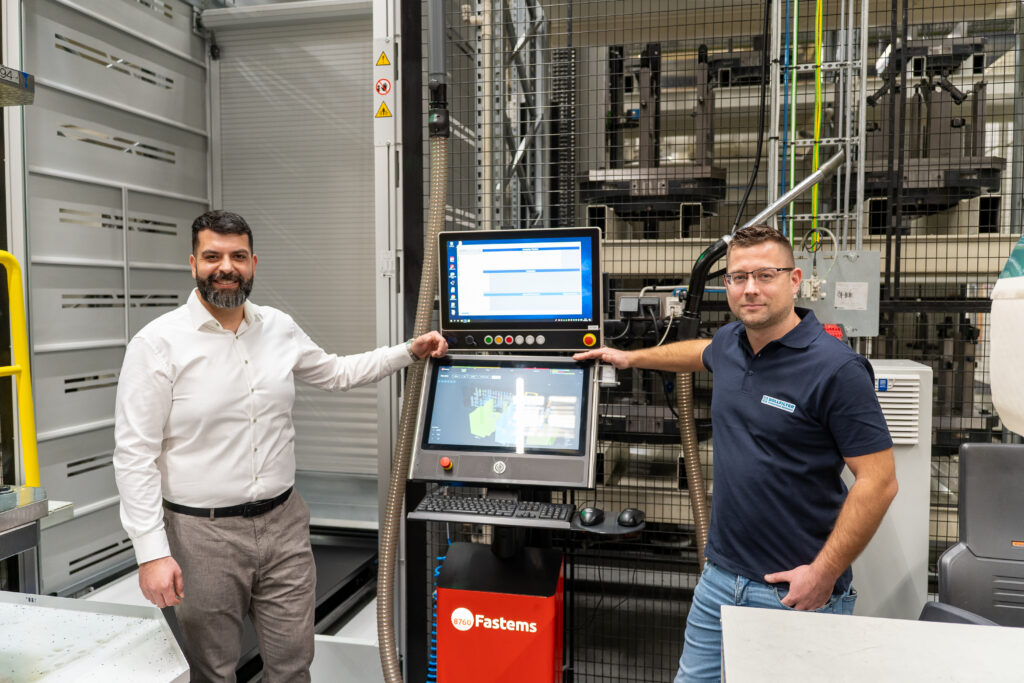Predictive Maintenance Strategy Secures Full-Speed FMS Operation 24/7
Flexible manufacturing systems (FMS) offer significant productivity increase by enabling parallel machining. This multi-machine CNC automation often plays a key role in manufacturing, and high system availability must be taken care of throughout its entire lifecycle. This is the key reason why Boll & Kirch Filterbau GmbH relies on Fastems as their automation partner—breaking the new ground together.
“We produce filtration technology for industrial use, primarily for oil, water, and gas applications. Good example is shipbuilding where we manufacture solutions for crude oil and ballast water filtration. Other industries we serve include engine manufacturing, steel, automotive, chemical, power generation, water treatment, and water supply,” explains Dominik Wierscheim, Head of Electrical Maintenance at Boll & Kirch’s Kerpen site, located 25 kilometers southwest from Cologne.
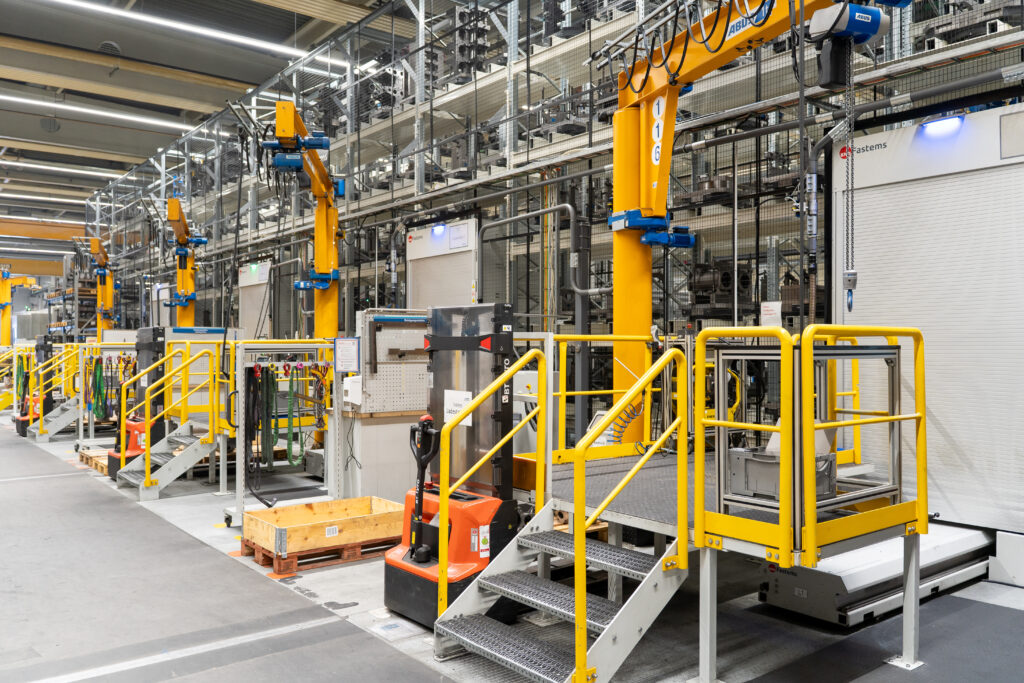
(All images: Boll & Kirch Filterbau GmbH)
FMS with Three Machines Replaced Ten Stand-Alone Machine Tools
Boll & Kirch employs around 900 people, with approximately 650 working at its two facilities in Kerpen.
In 2019, Boll & Kirch invested in a Multi-Level System (MLS) to interlink two H6000 and one H8000 Heller machining centers. The 38-meter MLS-XMD has a payload capacity of 3,000 kg per pallet, and it accommodates 204 pallets—including 630×630 mm pallets in four different heights, and 800×800 mm pallets in three different heights.
According to Wierscheim, the main driver for FMS investment was to modernize and expand mechanical production: “Today, our FMS has replaced ten 4-axis machining centers and saved significant floor space. We machine components of steel, cast steel, and stainless steel with our FMS. For example, we machine mechanical components and parts for our filtration systems, as well as complete pressure vessels for filter units that we receive as raw castings.”
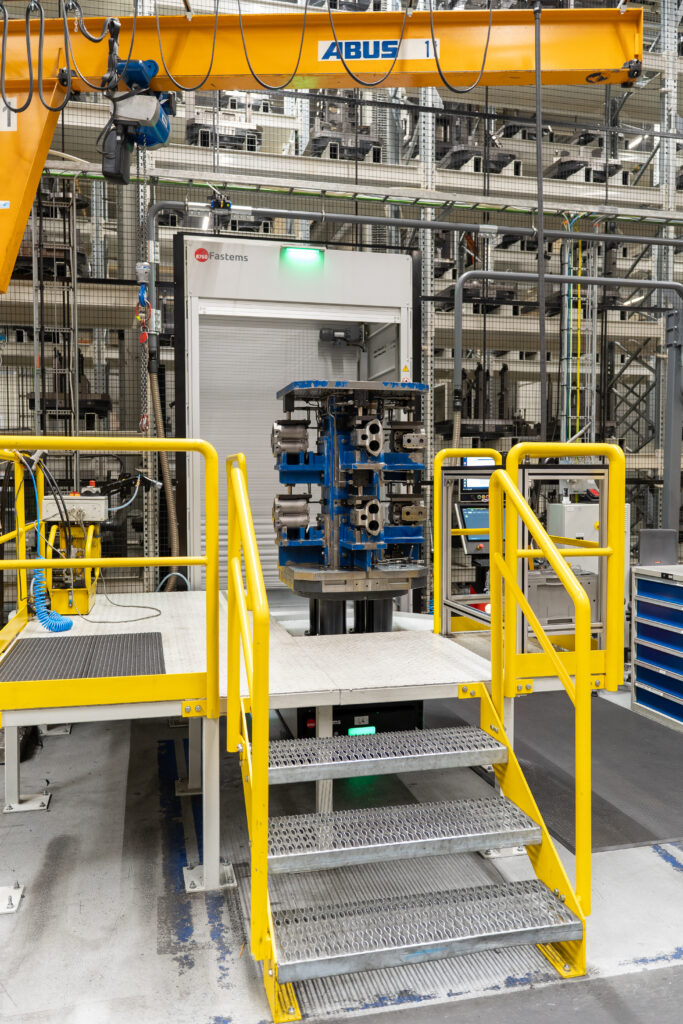
“FMS plays key role in our manufacturing and we wanted to prevent any unplanned downtime. Our goal was to have the system regularly maintained according to manufacturer’s specifications, right from the start.”
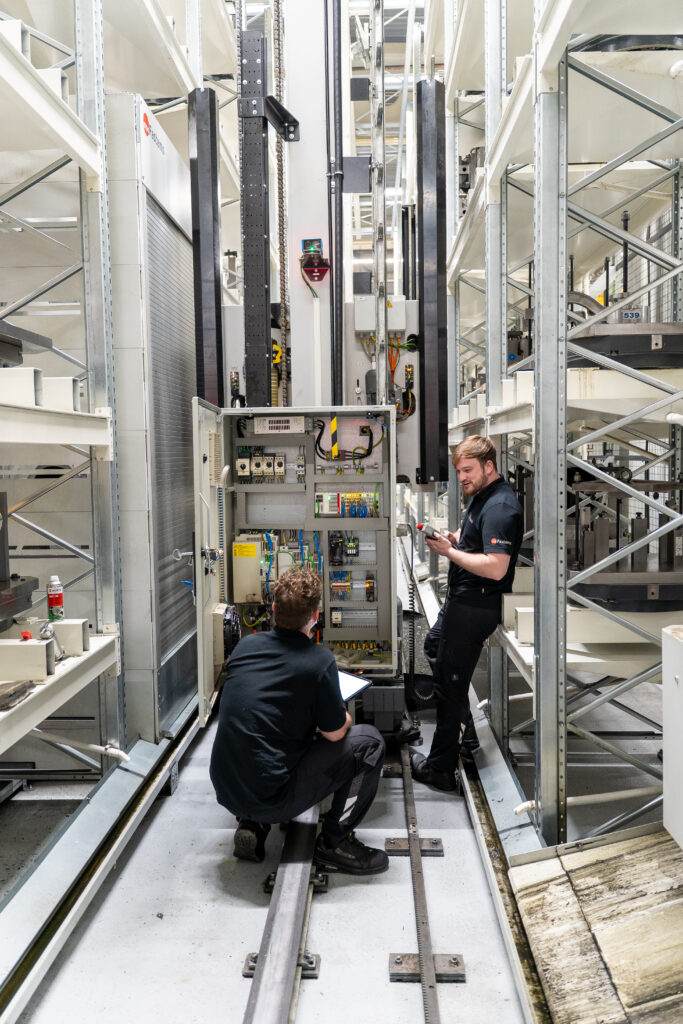
Ensuring 24/7 Availability with Lifecycle Services
Maintenance teams of Boll & Kirch have an extensive portfolio of machines and devices to take care of, and it cannot be expected that they have necessary expertise to service a new system from the day one. “We wanted to prevent any unplanned downtime. Our goal was to have the system regularly maintained according to manufacturer’s specifications, right from the start,” says Wierscheim.
For this, Boll & Kirch has a 24/7 Premium Service Contract with Fastems. The agreement includes round-the-clock remote support with two-hour response time in critical matters, and under one day response time in non-critical issues. The contract also includes technical support hours at no additional cost, Windows security updates, and optional updates for the automation control software MMS that is used for planning, executing, and monitoring automated production.
“Our philosophy isn’t to know every system inside and out. We’re responsible for more than 35 CNC machines from various manufacturers, numerous special machines for our complex filtration technology, a fully automated high-bay warehouse, and more than 100 crane systems. Still, we want to continuously develop and expand our knowledge of the FMS and its MMS controls,” tells Wierscheim.
After moving from two to three shifts that increased their system utilization, Boll & Kirch decided to double the annual maintenance from two to four. “Decisions are based on our daily experiences with the system, and we want to rely on a strong partner like Fastems,” says Wierscheim.
Maintenance Plan Adapts to Customer’s Needs
In the beginning of 2025, Dominik Wierscheim decided to further expand service activities—and for very good reasons, as he emphasizes:
“Within the past year, we’ve implemented so many products into the FMS that every production line at our site now relies on at least one component manufactured with the FMS. Being responsible for its technical support and availability, it was clear to me that the FMS must never experience an unplanned downtime. In coordination with Fastems, we therefore decided to maintain the system by alternating the maintenance and inspection intervals in every two months, totaling six visits a year.”
The decision quickly proved its value. Due to high FMS utilization, certain heavily used components were identified to be end-of-life, even though the system was still operational.
“We can now repair or replace such components in a planned manner, avoiding unexpected downtime. In one case, we adjusted production shifts for a week and used a Saturday to carry out the necessary repairs. We did not interrupt the actual manufacturing at all,” says Wierscheim.
Regular inspections are relatively new for both parties in this project. Nebo Petrovic, Head of Service Execution at Fastems, explains: “We’re currently developing tailored strategies and inspection plans for Boll & Kirch’s needs. Our experience of these inspections has so far been excellent—for both companies. Our other customers will surely benefit from this development in the future as well!”
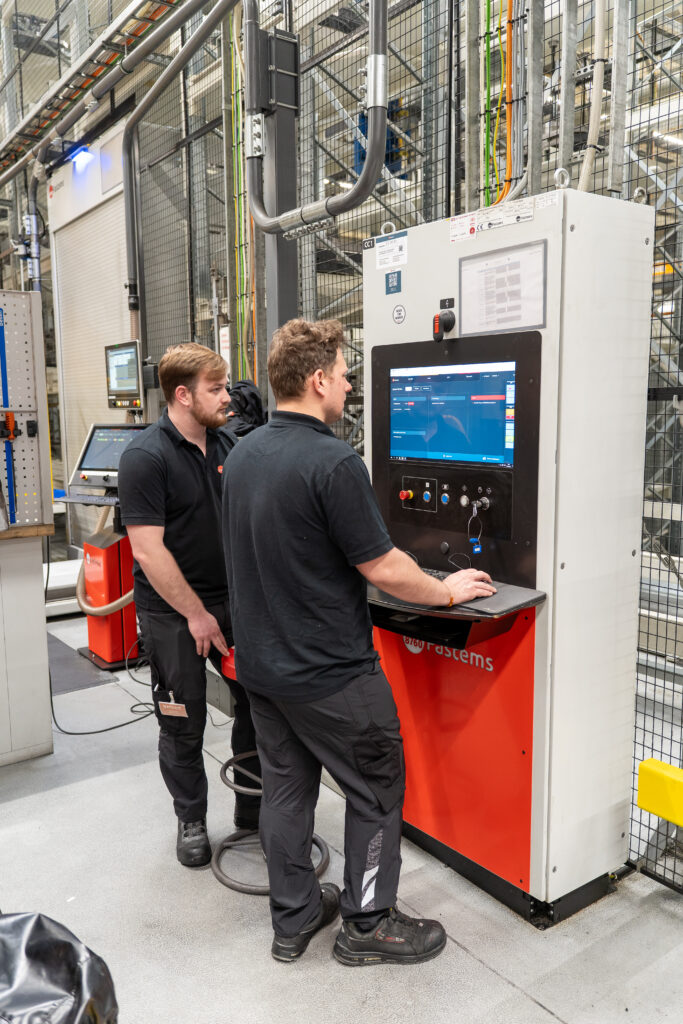
Continuous Improvement on Lifecycle Management
Dominik Wierscheim emphasizes how important it is for his maintenance team to gain more insights into the FMS – together with Fastems: “Based on our results, predictive maintenance is becoming increasingly important. We’re now able to plan work more efficiently and for example, replace wear-prone components preventively before they fail.”
Wierscheim refers to the service contract with Fastems as a living agreement that incorporates the latest experiences and insights into practical implementation: “This only works when your partner is committed to high reliability and flexibility. In this regard, we’re extremely satisfied with Fastems, especially with the quality of their work. They understand how critical the FMS is for our production—and they always act accordingly,” Wierscheim concludes.
